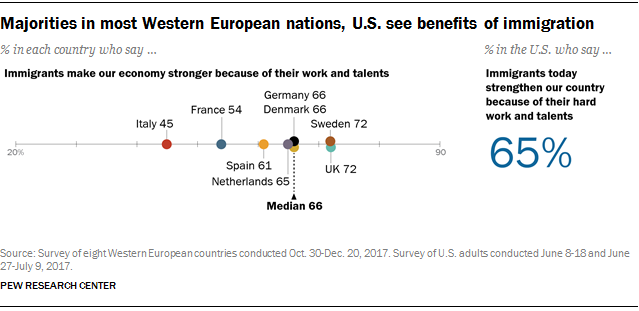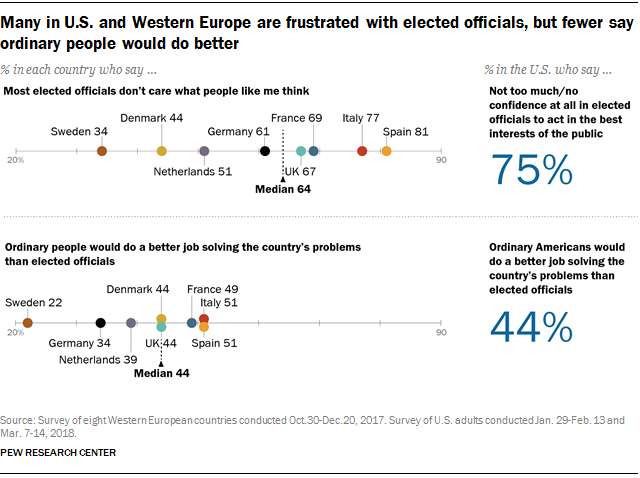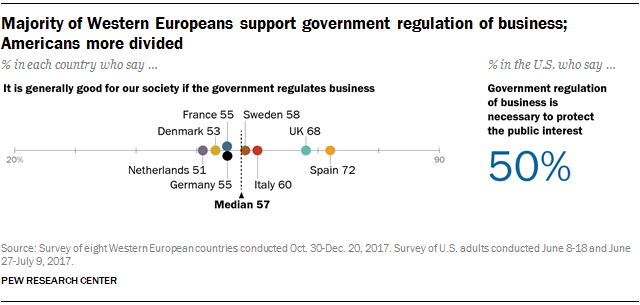Americans and Western Europeans have broadly similar views on certain social and political issues, according to recent Pew Research Center surveys conducted on both sides of the Atlantic.
Below are four examples of these similarities. These findings are based on a Pew Research Center survey conducted between October and December in eight Western European countries, and on nationally representative U.S. surveys conducted in 2017 and 2018. (Other surveys by the Center have found notable differences between Americans and Western Europeans, such as in their attitudes toward abortion.)
1Majorities of Americans and Western Europeans see immigrants as beneficial to their economies rather than burdensome. Around two-thirds of Americans (65%) said last summer that immigrants strengthen the country because of their hard work and talents, while only 26% said immigrants are a burden because they take jobs, housing and health care. In Western Europe, a median of 66% said immigrants make their respective economies stronger. Only in Italy did roughly as many say immigrants are a burden on the economy because they take jobs (44%) as said the economy is strengthened by immigrants’ hard work and talents (45%).

2Most Western Europeans and Americans support certain rights for gays and lesbians. In every Western European country but Italy, roughly two-thirds or more said that gays and lesbians should be able to adopt children. Italy was the only country surveyed in which more people opposed (52%) than supported (42%) adoption by same-sex couples. In the U.S., acceptance of homosexuality is growing: Majorities of Americans last year said homosexuality should be accepted by society and that gays and lesbians should be allowed to marry legally.
3Western Europeans and Americans share a similar level of skepticism about elected officials. In six of the eight Western European countries surveyed, half or more said elected officials don’t care what people like them think. Similarly, three-quarters of Americans said in a January-February 2018 survey that they had little or no confidence in elected officials to act in the best interests of the public. That said, Americans and Western Europeans were more mixed about whether ordinary citizens would do a better job solving the country’s problems than elected officials: A median of 44% of Western Europeans said citizens would do a better job, as did 44% of Americans in a separate March 2018 survey. However, about half of the French, Italians and Spaniards placed more confidence in the wisdom of their fellow citizens to solve their country’s problems than their elected officials.

4A majority of Western Europeans support government regulation of business, but Americans are divided on whether regulation is necessary for the public interest. People across Western Europe generally believe it is good for society if the government regulates business. In the eight countries surveyed late last year, a median of 57% said this is good, with the publics in Spain (72%) and the UK (68%) especially positive about government regulation of business. Last summer, Americans were divided on whether government regulation of business is necessary to protect the public interest (50%) or usually does more harm than good (45%).




